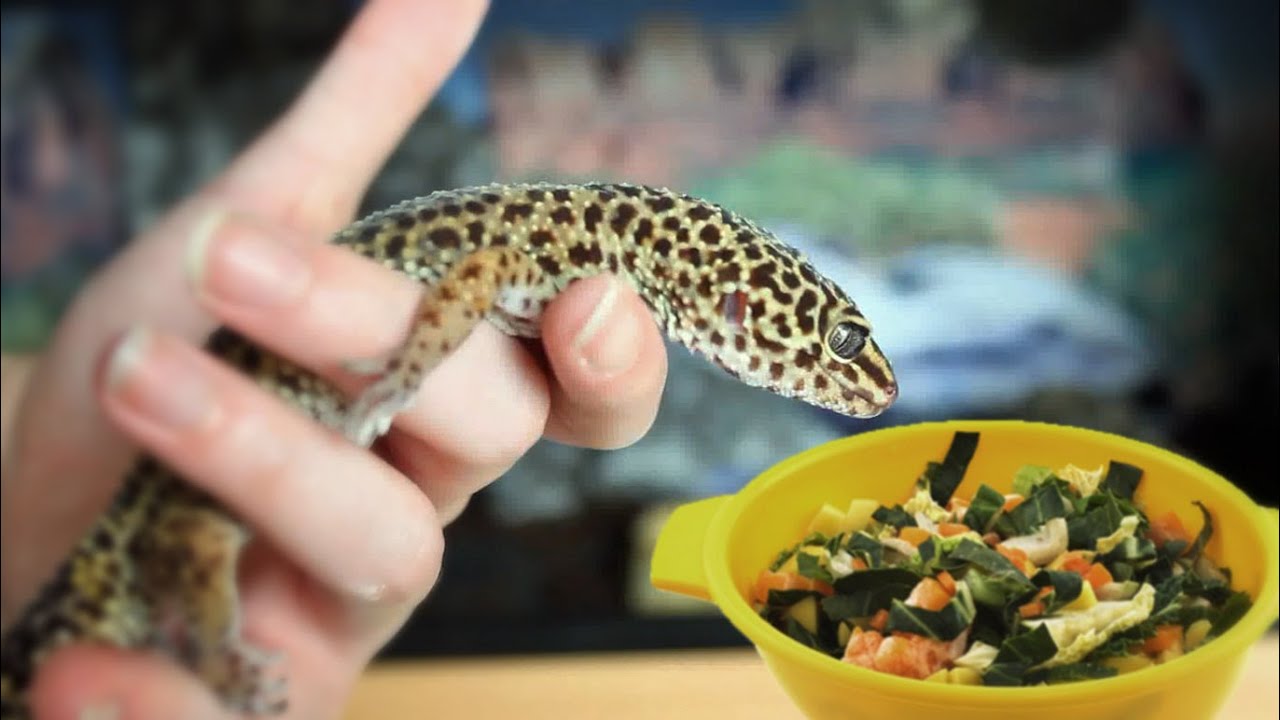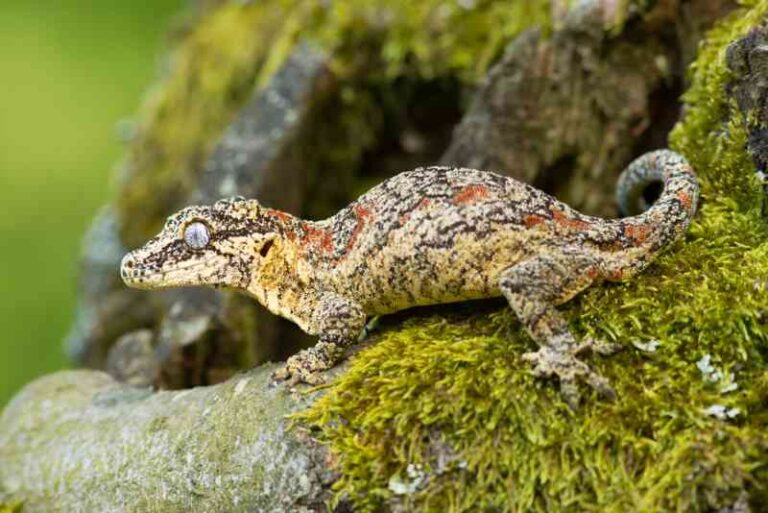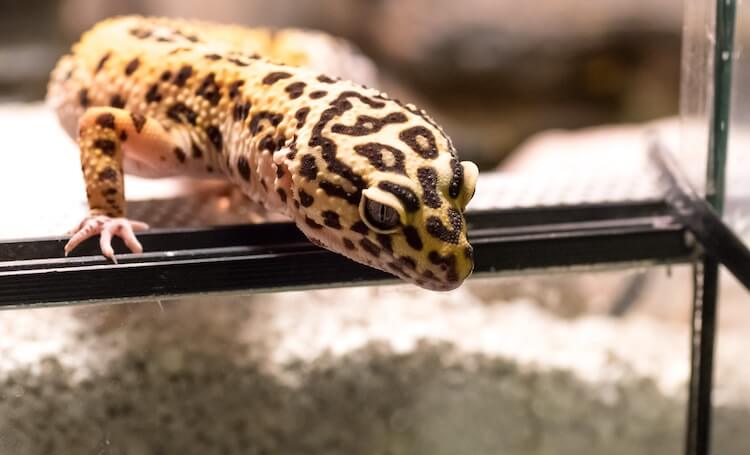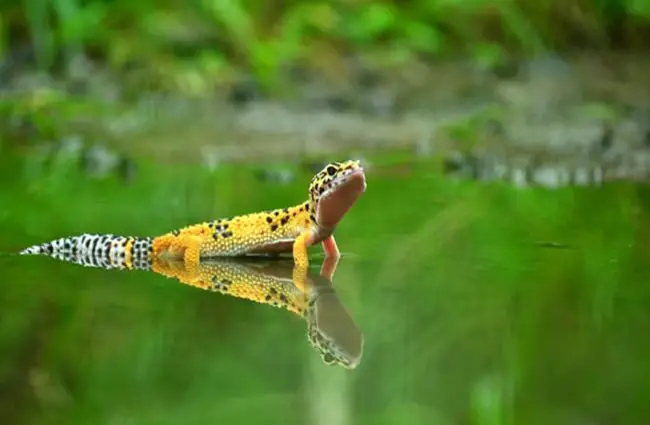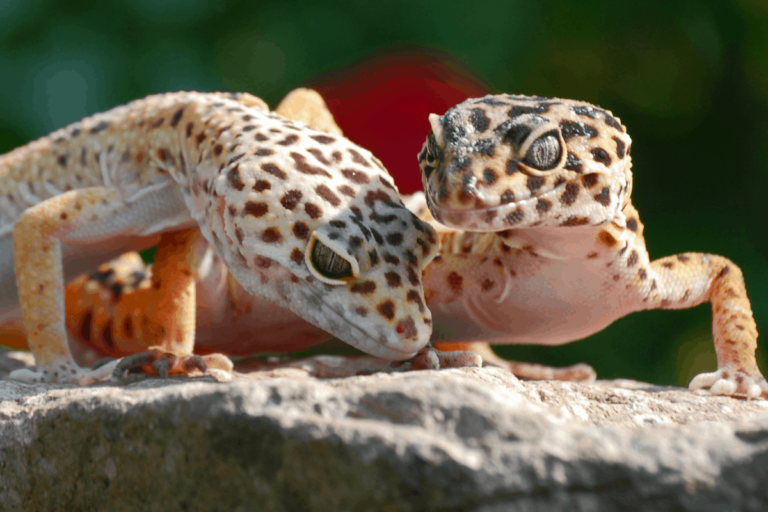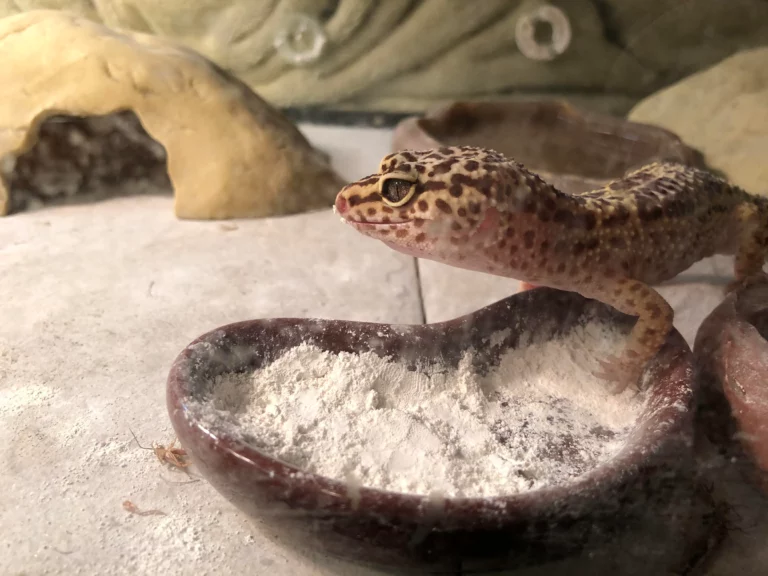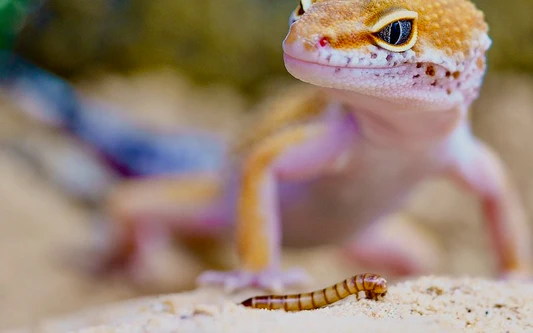Can Leopard Geckos Eat Fruit: The Ultimate Guide
As a passionate leopard gecko enthusiast, my journey into the world of reptile care has been nothing short of fascinating. These charming creatures, with their distinctive spots and captivating personalities, have become more than just pets to me; they’re family. Along the way, I’ve encountered numerous questions about their care, but one that stands out is, Can leopard geckos eat fruit?
The answer is No, Resist the temptation to feed fruit to your leopard gecko. These pet lizards are insect eaters, and their bodies aren’t built for digesting fruit. Giving them fruit, even as a treat, can lead to mouth problems and tummy issues. Stick to their insect diet unless a vet says otherwise.
So, let’s embark on this adventure together, as we unveil the dietary secrets of our scaly companions and ensure they thrive in our care.
Why Leopard Geckos Shouldn’t Eat Fruit: Unveiling the Crucial Reasons
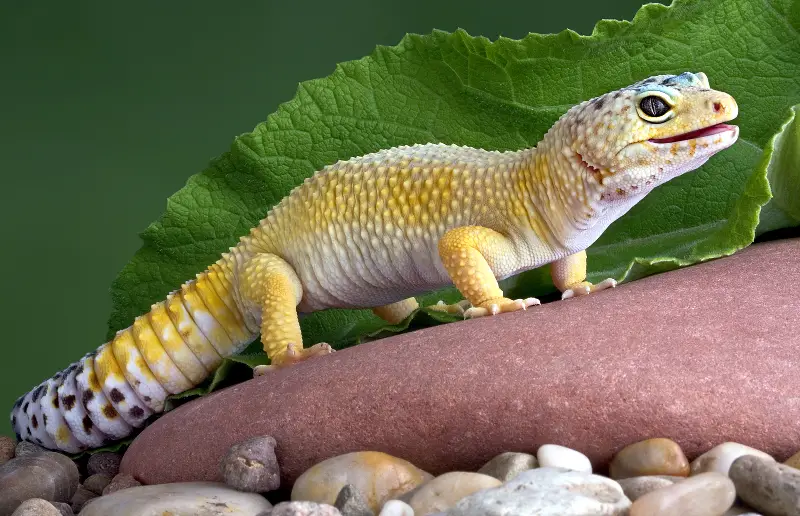
Leopard geckos are captivating reptilian companions, known for their unique appearance and endearing personalities. As responsible pet owners, it’s crucial to understand their dietary needs thoroughly
Sugar Content:
Leopard geckos, unlike many other creatures, lack the capacity to effectively process sugar. Even fruits that seem low in sugar, such as avocados or grapes, can be harmful to them. It can lead to the buildup of plaque on their numerous tiny teeth, eventually resulting in a dangerous condition known as mouth rot. This condition can escalate into severe, often fatal infections.
Moreover, excessive sugar consumption can trigger diabetes, fatty liver disease, and other detrimental health complications. Therefore, it is strongly advised to completely avoid feeding fruit to your pet gecko.
Digestive Issues:
These reptiles are primarily insectivores, meaning their digestive systems are finely tuned for processing animal proteins. When they ingest fruit, their bodies struggle to digest the plant-based material efficiently.
Also, Unlike herbivores and omnivores, geckos lack a specialized organ called the caecum, which aids in breaking down plant matter. Consequently, when they consume fruit, the undigested cellulose can lead to severe digestive problems, including regurgitation. This regurgitation can result in tissue damage, infections, and potentially fatal consequences.
Calcium & Phosphorus Imbalance:
To maintain healthy bone development and essential bodily functions, leopard geckos require a precise balance of calcium and phosphorus in their diet. Calcium supplements are commonly included in their diets to ensure they receive an adequate amount of this vital mineral.
On the other hand, It contains high levels of phosphorus and minimal calcium. This disrupts the critical calcium-to-phosphorus ratio needed for their well-being. Such an imbalance significantly raises the risk of metabolic bone disease, a debilitating condition affecting the skeletal system, resulting in deformities, paralysis, and organ failure.
Small Jaws and Sharp Teeth:
Geckos possess relatively small jaws and sharp teeth designed for slicing through small insects rather than chewing tough, fibrous fruits. In contrast to herbivores with large jaws and flat teeth, like cows, these reptiles lack the physical adaptations required to process plant matter efficiently. Attempting to consume mushy and stringy fruits can lead to stomach cramps and difficulties in defecation due to their short digestive tracts.
Short Digestive Tract:
These animals have a short digestive tract optimized for efficiently processing simple animal proteins, which constitute their primary diet. In contrast, plant foods, like fruits, require longer intestines for effective digestion.
Further, an excellent example of this contrast can be found in cows, strict herbivores with elongated digestive tracts, and multiple stomach compartments to break down tough grasses. Shorter intestines are not suitable for fruit digestion and can result in stomach discomfort and difficulties in defecation when attempting to feed them fruit.
Alkaline Gastrointestinal Tract:
Understanding the difference between an alkaline and acidic digestive environment is essential when considering the dietary needs of these reptiles. Their naturally alkaline digestive system, unique to their insect-eating lifestyle, is not equipped for efficient fruit digestion.
Moreover, excessive acid production in response to fruit consumption can lead to inflammation and increase vulnerability to various health issues. Maintaining an alkaline pH balance in their bodies is critical for overall well-being, and introducing fruits can disrupt this balance, potentially causing harm.
What Happens If A Leopard Gecko Eats Fruit?
Digestive Issues: These geckos have a digestive system optimized for processing animal proteins found in insects. When they ingest fruit, which contains plant-based material, their bodies struggle to digest it efficiently. The cellulose from fruit can remain undigested, leading to digestive problems, including regurgitation.
Stomach Discomfort: Attempting to digest fruit can cause stomach cramps and discomfort due to the short digestive tract, which is better suited for processing animal proteins.
Metabolic Imbalance: Fruits contain high levels of phosphorus and minimal calcium, disrupting the precise calcium-to-phosphorus ratio needed for healthy bone development and overall well-being. An imbalance in these minerals can increase the risk of metabolic bone disease, a debilitating condition affecting the skeletal system.
Sugar-Related Issues: Geckos lack the biological mechanisms to process sugar effectively. Consuming fruits can lead to an excess intake of sugar, resulting in plaque buildup on their teeth, potentially causing mouth rot. Excessive sugar consumption can also lead to diabetes, fatty liver disease, and other harmful health complications.
Altered pH Balance: These reptiles naturally have an alkaline gastrointestinal tract optimized for digesting insect proteins. Introducing fruits can disrupt this balance, potentially leading to inflammation and making them more susceptible to various health issues.
What Is An Appropriate Diet For A Leopard Gecko?
An appropriate diet for a leopard gecko primarily consists of live insects. Common options include crickets, mealworms, dubia roaches, and silkworms, chosen based on the gecko’s age and size. It’s crucial to gut-load insects with nutritious food before feeding them to your gecko, enhancing their nutritional value.
Additionally, calcium and vitamin D3 supplements are vital, but caution should be exercised not to over-supplement. Importantly, it’s essential to avoid feeding fruits, vegetables, or plant matter, as these can lead to digestive issues.
Moreover, providing clean, shallow water in their enclosure for hydration is also essential. By offering a varied diet and ensuring proper supplementation, you can help ensure your leopard gecko’s health and well-being.
Leopard gecko feeding chart :
| Age/Size | Feeder Insects | Frequency | Supplements |
| Hatchling | Pinhead or small | Daily | Calcium (with D3) daily |
| (0-3 months) | crickets, small | Multivitamin (2x/week) | |
| mealworms, small | |||
| dubia roaches | |||
| Juvenile | Small to medium | Every other day | Calcium (with D3) daily |
| (3-6 months) | crickets, mealworms | Multivitamin (2x/week) | |
| dubia roaches | |||
| Sub-Adult | Medium to large | Every 2-3 days | Calcium (with D3) 3x/week |
| (6-12 months) | crickets, mealworms | Multivitamin (1x/week) | |
| dubia roaches | |||
| Adult | Large to extra-large | Every 3-4 days | Calcium (with D3) 2x/week |
| (12+ months) | crickets, mealworms,dubia roaches | Multivitamin (1x/week) |
What Should Leopard Geckos Eat As A Snack Or Treat?
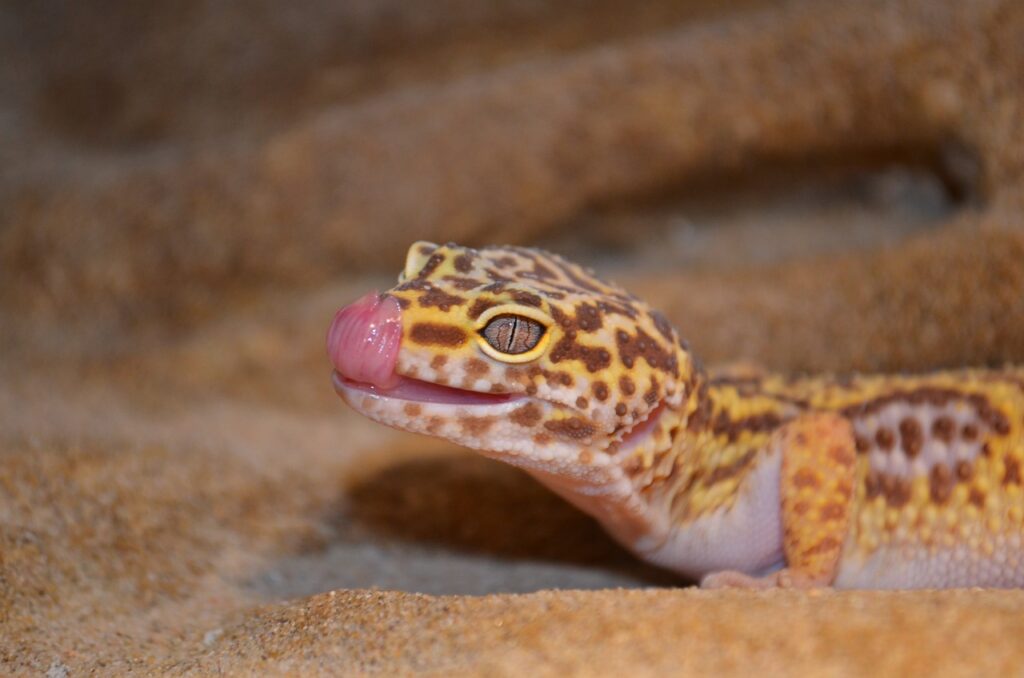
When it comes to treating your leopard gecko, the best option may seem a bit unconventional to us, but it is perfectly natural for them – insects! Observing your gecko’s eating habits can reveal their favorite bugs. If they eagerly devour certain insects and leave none behind, those are likely their favorites.
In addition, to pinpoint their top pick, you can experiment by offering different bugs simultaneously and noting which one they go for first. Over time, you’ll notice a pattern and discover the ultimate treat for your gecko. You can even introduce occasional treats like waxworms, which are not nutritionally balanced enough to serve as a complete meal.
Once you’ve identified their favorite treats, you can utilize them for training and handling purposes. Incentivizing your gecko with their preferred bugs is a clever way to grab their attention and make interactions more rewarding. It’s a smart approach to keeping your gecko happy and engaged.
Are There Any Uncommon Situations When You Can Feed Them Fruit?
Yes, feeding leopard geckos fruit is extremely rare and should only be done under the guidance of a vet, typically when a gecko is recovering from an illness and needs extra nutrition. Even then, it’s not as simple as giving them fruit; it involves blending fruit with insects to make a special slurry. This is because the sugar and phosphorus in fruit can be problematic for geckos.
Further, a safer way to use fruit’s vitamins and minerals is to offer it to the insects you feed your gecko. For example, you can give fruit to crickets or mealworms a day before feeding them to your gecko. This way, your gecko gets the benefits without the risks. Always follow your vet’s advice when it comes to feeding your gecko anything unusual.
How Do Leopard Geckos Get Nutrients From Their Food?
Addressing the concern about how leopard geckos obtain their vitamins and minerals, the common practice is to sprinkle a reptile-specific calcium and vitamin D supplement powder onto their insects. This step fortifies the insects and guarantees that your pet receives essential nutrients.
Also, Insects, in their own right, contain vitamins and minerals, but the quality of their diet matters significantly. In many cases, insects from pet stores may have had a subpar diet, with some potentially consuming paper. Therefore, once you bring these insects home, it’s crucial to “gut load” them, enhancing their nutritional value.
Gut loading entails feeding the insects a nutritious diet for a day or so before offering them to your gecko. This ensures that the insects themselves become nutrient-rich, and when your gecko consumes them, they receive the right nutrients, promoting their overall health and well-being.
FAQs
Can geckos eat fruits?
Yes, geckos can eat fruits in moderation as part of their diet.
What fruits are toxic to leopard geckos?
Citrus fruits and avocados are toxic to leopard geckos and should be avoided.
Are bananas good for leopard geckos?
Yes, Bananas can be offered to leopard geckos occasionally as a treat, but they should not be a primary food source due to their high sugar content.
Can leopard geckos eat human food?
No, Leopard geckos should primarily be fed a diet of insects and appropriate reptile supplements. Human food is generally not suitable for their diet.
What is a leopard gecko’s favorite fruit?
Leopard geckos may have individual preferences, but they generally enjoy soft, sweet fruits like papaya or mango in small quantities.
What scares leopard geckos?
Leopard geckos can be startled by sudden movements, loud noises, or handling, so it’s important to handle them gently and provide a calm environment.
Is egg good for leopard gecko?
Yes, scrambled or boiled eggs (without seasoning) can be offered as an occasional protein source for leopard geckos.
What is a leopard gecko’s favorite food?
Leopard geckos typically favor live insects such as crickets, mealworms, and dubia roaches as their primary food source.
Final words
In conclusion, I’ve learned that leopard geckos shouldn’t have fruit as a regular part of their diet. They are primarily insect eaters, and fruit can cause health problems for them. Although there are rare situations, like when a vet recommends a fruit-based slurry for a gecko’s recovery, it’s not something they should eat regularly.
In addition, to ensure my gecko stays healthy, I’ll stick to a diet of gut-loaded insects with calcium and vitamin D3 supplements. This approach keeps my gecko thriving and avoids any potential issues that could arise from giving them fruit.

